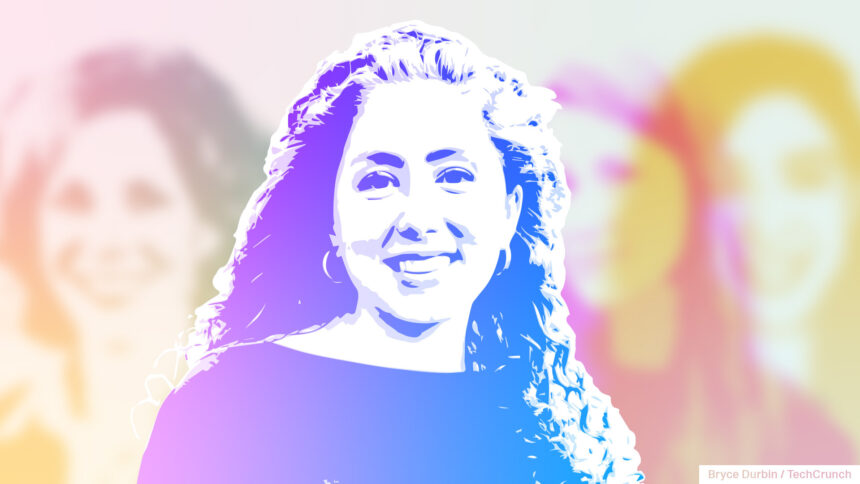To give AI-focused women academics and others their well-deserved — and overdue — time in the spotlight, TechCrunch is launching a series of interviews focusing on remarkable women who’ve contributed to the AI revolution. We’ll publish several pieces throughout the year as the AI boom continues, highlighting key work that often goes unrecognized. Read more profiles here.
Claire Leibowicz is the head of the AI and media integrity program at the Partnership on AI (PAI), the industry group backed by Amazon, Meta, Google, Microsoft and others committed to the “responsible” deployment of AI tech. She also oversees PAI’s AI and media integrity steering committee.
In 2021, Leibowicz was a journalism fellow at Tablet Magazine, and in 2022, she was a fellow at The Rockefeller Foundation’s Bellagio Center focused on AI governance. Leibowicz — who holds a BA in psychology and computer science from Harvard and a master’s degree from Oxford — has advised companies, governments and nonprofit organizations on AI governance, generative media and digital information.
Q&A
Briefly, how did you get your start in AI? What attracted you to the field?
It may seem paradoxical, but I came to the AI field from an interest in human behavior. I grew up in New York, and I was always captivated by the many ways people there interact and how such a diverse society takes shape. I was curious about huge questions that affect truth and justice, like how do we choose to trust others? What prompts intergroup conflict? Why do people believe certain things to be true and not others? I started out exploring these questions in my academic life through cognitive science research, and I quickly realized that technology was affecting the answers to these questions. I also found it intriguing how artificial intelligence could be a metaphor for human intelligence.
That brought me into computer science classrooms where faculty — I have to shout out Professor Barbara Grosz, who is a trailblazer in natural language processing, and Professor Jim Waldo, who blended his philosophy and computer science background — underscored the importance of filling their classrooms with non-computer science and -engineering majors to focus on the social impact of technologies, including AI. And this was before “AI ethics” was a distinct and popular field. They made clear that, while technical understanding is beneficial, technology affects vast realms including geopolitics, economics, social engagement and more, thereby requiring people from many disciplinary backgrounds to weigh in on seemingly technological questions.
Whether you’re an educator thinking about how generative AI tools affect pedagogy, a museum curator experimenting with a predictive route for an exhibit or a doctor investigating new image detection methods for reading lab reports, AI can impact your field. This reality, that AI touches many domains, intrigued me: there was intellectual variety inherent to working in the AI field, and this brought with it a chance to impact many facets of society.
What work are you most proud of (in the AI field)?
I’m proud of the work in AI that brings disparate perspectives together in a surprising and action-oriented way — that not only accommodates, but encourages, disagreement. I joined the PAI as the organization’s second staff member six years ago, and sensed right away the organization was trailblazing in its commitment to diverse perspectives. PAI saw such work as a vital prerequisite to AI governance that mitigates harm and leads to practical adoption and impact in the AI field. This has proven true, and I have been heartened to help shape PAI’s embrace of multidisciplinarity and watch the institution grow alongside the AI field.
Our work on synthetic media over the past six years started well before generative AI became part of the public consciousness, and exemplifies the possibilities of multistakeholder AI governance. In 2020, we worked with nine different organizations from civil society, industry and media to shape Facebook’s Deepfake Detection Challenge, a machine learning competition for building models to detect AI-generated media. These outside perspectives helped shape the fairness and goals of the winning models — showing how human rights experts and journalists can contribute to a seemingly technical question like deepfake detection. Last year, we published a normative set of guidance on responsible synthetic media — PAI’s Responsible Practices for Synthetic Media — that now has 18 supporters from extremely different backgrounds, ranging from OpenAI to TikTok to Code for Africa, Bumble, BBC and WITNESS. Being able to put pen to paper on actionable guidance that is informed by technical and social realities is one thing, but it’s another to actually get institutional support. In this case, institutions committed to providing transparency reports about how they navigate the synthetic media field. AI projects that feature tangible guidance, and show how to implement that guidance across institutions, are some of the most meaningful to me.
How do you navigate the challenges of the male-dominated tech industry, and, by extension, the male-dominated AI industry?
Source: techcrunch.com


